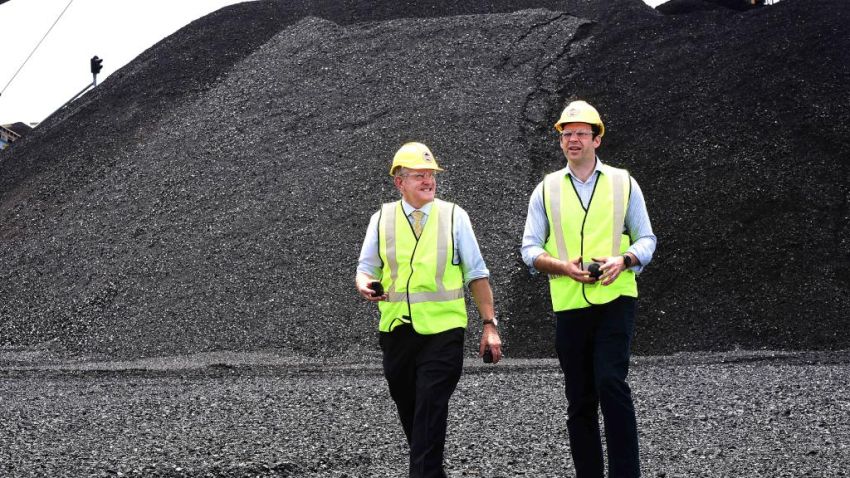
Resources minister Matt Canavan jetted off to India last month to continuing the unedifying Australian government tradition of flogging the nation’s dirtiest minerals to the places that least need them, documents obtained by the Australian Conservation Foundation (ACF) have revealed.
Ostensibly, the minister was there to hawk Australia’s coal and uranium industries, which he claims will deliver salvation to millions of Indians living in poverty. In practice, Canavan was there to cosy-up with the billionaire owners of companies like the Adani Group, which has allegedly been involved in corruption, tax evasion, human rights violations and environmental destruction.
It is a strange leap of faith to think — as Canavan does — that these multinationals can be trusted to reduce global emissions, lift millions out of poverty and create a jobs bonanza for Australian workers.
As the old saying goes, if it sounds too good to be true, then it probably is.
The fact is Australia’s current energy exports are not helping. Australian uranium directly fuelled Japan’s Fukushima nuclear plant, while coal exports are one of the country’s biggest contributors to climate change.
Research commissioned by the ACF found Australia’s domestic and exported coal emissions contributed about 3.5% of global emissions in 2017. By 2030, this figure could be three times higher and pushing 11%.
Climate change, fuelled by Australia’s coal, will hurt the world’s poorest first and worst. Failing to limit global warming to 1.5oC could expose hundreds of millions of people to climate-related risks and poverty.
In a country like India, the human impacts of hotter weather, unreliable rainfall and more frequent extreme weather events will be profound.
Unlike contested proposals for nuclear power stations in India, there is strong support for the uptake of renewable energy. India’s government has ambitious plans to rapidly upscale its investment in clean energy. Under the Paris Agreement, the nation has committed to have 40% of its installed power coming from renewables by 2030.
With cutting edge solar and wind power plants now far cheaper than new coal and nuclear power stations, India has turbocharged its investment, adding 9 gigawatts of solar photovoltaics in 2018.
But it is not just the climate crisis that is driving India’s renewable energy revolution.
As the country’s population grows, poor air quality is damaging human health. According to the World Health Organisation, 10 of the 12 most polluted cities in the world are in India.
Research published in prestigious medical journal The Lancet concluded 1.24 million deaths in 2017 were attributable to air pollution. Burning coal for thermal power production is a major source of this pollution.
Do not be fooled: the companies and politicians obsessed with these dirty fuels are not being driven by concerns about poverty, workers or the environment. They are not philanthropists — they are profit seekers. And while they might consider danger signs, these are always secondary to the lure of the dollar signs.
But amid the worsening climate crisis, accelerated by big resources companies, green shoots of hope are emerging.
The global boom in renewable energy and shift away from dirty fuels represents an enormous opportunity for countries like Australia, which has seen its manufacturing sector ravaged by decades of bipartisan neoliberal policy.
Instead of shipping Australia’s dirtiest fuels overseas, the government should set up a new, publicly-owned renewable energy industry.
On top of rebooting our manufacturing sector, a solar, wind and hydrogen export industry could employ thousands of workers in well-paid, good quality, skilled and sustainable jobs.
It would also enable us to make a genuine contribution to the climate crisis and economic development of the region.
Australia is at a crossroads. We can choose, as Canavan clearly desires, to encourage big fossil fuel companies and their billionaire owners to “let it rip” at the expense of the environment and communities.
Or we can position ourselves to be leaders of the fastest growing energy sector on Earth: the renewable sector.
The choice is clear — and if we make the right one, India’s air will be too.
[Christian Slattery is ACF Stop Adani Campaigner. Dave Sweeney is ACF Nuclear Free Campaigner and has worked extensively on nuclear and uranium issues for several decades.]